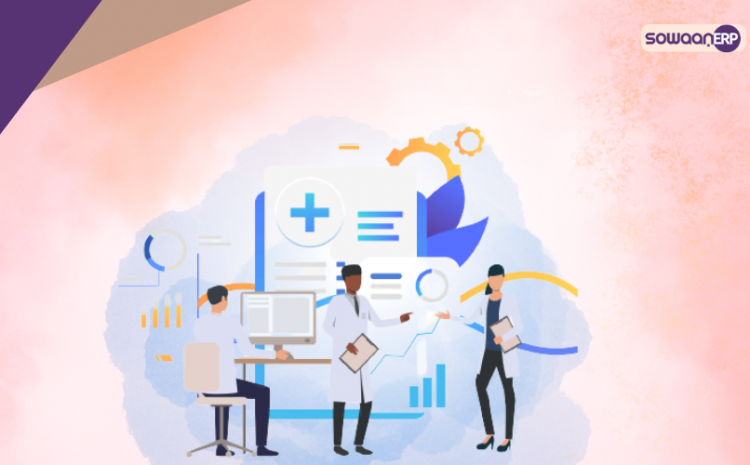
Predictive analytics with enterprise resource planning (ERP) solutions is an exciting area of development in the future of healthcare. By leveraging data from electronic health records (EHRs), medical devices, and other sources, healthcare ERP solutions in the USA can use predictive analytics to anticipate potential health issues and improve patient outcomes.
Benefits of Using ERP Solutions for Predictive Analysis
One key advantage of using ERP solutions for predictive analytics in healthcare is the ability to integrate data from multiple sources. This can include clinical data from EHRs, financial data from billing systems, and supply chain data from inventory management systems. By combining this information, healthcare providers can gain a more comprehensive understanding of patient health and identify patterns that may be predictive of future health problems.
Another benefit of using healthcare software ERP in the USA for predictive analytics is the ability to identify trends and patterns in real-time. This can help providers proactively manage patient care, identify potential complications before they become serious, and make more informed treatment decisions.
In addition to improving patient outcomes, predictive analytics with ERP solutions can also help to reduce healthcare costs by minimizing waste, improving resource allocation, and reducing the need for costly interventions. By identifying high-risk patients and intervening early, healthcare providers can prevent hospitalizations and other expensive treatments.
Overall, the future of the health care system in the USA is likely to be increasingly focused on predictive analytics with ERP solutions. As data becomes more widely available and healthcare providers become more adept at leveraging it, we can expect to see significant improvements in patient outcomes and healthcare efficiency.
Healthcare using ERP
The future of ERP in the USA is rapidly changing, and one of the key technologies driving this change is predictive analytics. Predictive analytics involves the use of statistical models and machine learning algorithms to analyze large amounts of data and make predictions about future events or outcomes. In healthcare, predictive analytics can be used to identify patients who are at risk of developing certain conditions or diseases and to develop personalized treatment plans that can improve outcomes and reduce costs.
Enterprise Resource Planning (ERP) solutions are another important technology that is increasingly being used in healthcare. ERP systems are designed to manage and automate many of the core business processes of healthcare organizations, including supply chain management, financial management, and human resources management.
When predictive analytics and ERP solutions are combined, healthcare organizations can benefit from even greater insights and efficiencies. For example, predictive analytics can be used to forecast demand for medical supplies and equipment, which can help healthcare organizations optimize their supply chain management processes and reduce costs. Additionally, predictive analytics can be used to identify patterns and trends in patient data, which can be used to develop more effective treatment plans and improve patient outcomes.
What kinds of prediction models are applied in medicine?
Currently, a small number of cases involve the use of predictive analytics to find the best treatment strategies, prescription schedules, and engagement content as well as to predict illness progression and potential complications.
Here are some examples of healthcare predictive modeling.
- Preventing re-admission
- Advancing precision medicine and gauging the patient response
- Improvement in healthcare decision support
- Streamlining the management of stocks
- Increasing involvement of patients
Conclusion
Overall, the integration of predictive analytics with ERP solutions has the potential to transform the healthcare industry and companies using ERP systems in the USA by enabling more efficient and effective management of healthcare resources, as well as by improving patient outcomes through personalized treatment plans and early disease detection. However, it is important for healthcare organizations to carefully evaluate and implement these technologies in a way that is consistent with their overall strategic objectives and patient-centered mission.
